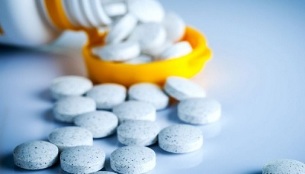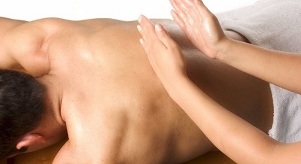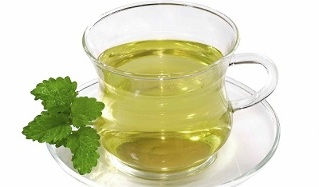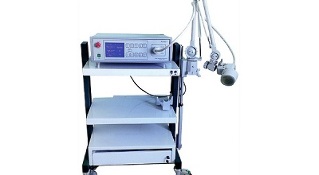Prostatitis takes different forms and reaches different stages. Calculated prostatitis is a type of disease characterized by the formation of stones in the prostate that subsequently cause harmful consequences.
What is this?
Significant prostatitis is a fairly rare form of prostate problems. It develops against the background of chronic inflammation and other diseases. Violation of visual acuity, urinary problems, pain in the perineum and lower abdomen.
There are two types of disease:
- True- stones are formed directly in the prostate gland and are formed from salts of calcium and phosphoric acid;
- False- conglomerates enter the prostate from other organs and are derived from urea salts.
Businesses vary in size and number. Prostate stones are also divided into 2 types:
- Endogenous- increases the likelihood of stagnant processes in chronic prostatitis, as a complication;
- Exogenous- occurs as a result of untreated diseases of the genitourinary system, often obstructing urination.
The main danger of chronic calculus prostatitis is the rapid deterioration of a man's general health, the development of complications, the emergence of new inflammations in other systems and organs.
Reasons
Stones in the prostate gland are caused by: stagnation of prostate secretion and penetration of urine into the body.
The first event is called:
- Acute or chronic prostatitis;
- Adenoma;
- Cancer.
An abnormality such as urine entering the prostate ducts is caused by the following factors:
- Regular inflammation of the urinary system;
- Genital injuries;
- Surgical intervention;
- Stones in the bladder and kidneys;
- Bladder catheterization.
Predisposition to calculus is also associated with several preconditions:
- Neglect of regular hygiene procedures;
- Bad habits;
- Irregular intimate life, rare sexual intercourse;
- Decreased immune system;
- Continuous exposure to stress;
- Influence of negative environmental factors;
- sedentary lifestyle;
- Exploitation of unhealthy food;
- Hormonal deficiency;
- Exposure to chronic constipation.
Diagnosis: Symptoms and signs in men
Symptoms of calcified prostatitis are expressed as follows:
- Pain in the groin and lower abdomen, back, pelvis, scrotum;
- Disorders of urination accompanied by pain syndrome, frequent cravings, persistent feeling of fullness of the bladder;
- Presence of bloody impurities in semen or urine;
- Pain, sexual intercourse, physical activity after emptying the bladder or intestines;
- Erectile dysfunction.
In the absence of appropriate treatment, additional symptoms appear after 1-2 months:
- increased irritability;
- Rapid fatigue;
- sleep disorder;
- General weakness;
- Severe headaches;
- Temperature rise.
You should see a doctor to diagnose calcified prostatitis. After the initial examination and collection of anamnesis, a urologist is appointed:
- Blood and urine tests, including microflora culture;
- Monitoring of urinary excretion (uroflowmetry);
- Study of prostate secretion;
- detection of prostate-specific antigen;
- Ultrasound diagnosis of pelvic organs and prostate gland;
- Tested by Meares.
How to treat calculus prostatitis, what to do?
Working with stones requires a combined approach. Treatment of significant prostatitis includes medication, support with folk remedies. Laser prostate effects and some physiotherapy methods are also effective.
Preparations

Antibiotics are the first choice in the treatment of calcified prostatitis. Depending on the test results, specific medications or injections are prescribed.
The following types of antibacterial drugs are most recommended:
- Penicillins;
- Fluoroquinolones are considered the most effective. Prostate tuberculosis should be ruled out for use;
- Tetracyclines - provoke side effects;
- Cephalosporins - indicated when intramuscular injection is required.
In addition, biological additives have been included in the treatment of calculus pathology, which has a complex effect on prostate tissue, activates blood flow, enhances cell renewal, prevents impotence and prevents complications.
The therapy regimen includes:
- Painkillers;
- Anti-inflammatory and anti-inflammatory drugs;
- Vitamin complexes;
- Preparations to improve blood circulation;
- Drugs that strengthen the immune system.
Is it possible to massage for significant prostatitis?
Many forms of prostatitis are effectively treated by direct massage of the gland, but in insignificant form, such an effect is completely ruled out. It is possible to apply for sessions only after the stones have been removed (and then only as prescribed by a doctor).
IMPORTANT:Some urologists point to a direct link between prostate function and spinal cord function. Thus, spinal massage and specific effects on biological points can be offered as additional treatments.

The following areas of the body are kneaded during the procedure:
- Legs - the outflow of venous blood from the pelvic organs is activated and pain is reduced;
- Pelvis - facilitates defecation and urination;
- Buttocks - reduces sperm blockage;
- Waist - prostate function is stable.
Folk remedies for calcified prostatitis: the most effective
Folk remedies also help to eliminate calcified prostatitis and speed up recovery.
The following are considered very effective for stones:
- Herbal infusion.Mix naked hernia and black letter in equal proportions. Pour a tablespoon of the collection into 0. 5 liters of boiling water. Insist until cool. Drink ½ cup 20 minutes before each main meal;
- Rosehip root decoction. Crush the dry roots. Pour 30 g with 250 g of clean water and cook for one minute on high heat. Leave for 2 hours and pass through cheesecloth. Drink during the day instead of regular tea;
- Parsley broth. Put 30 g of vegetable seeds in a pot. Pour a glass of boiling water and keep on low heat for a quarter of an hour. Allow to cool. Take one teaspoon 6 times a day;
- Healing collection.Mix sage, nettle, chamomile flowers, calamus, bear and plantain in equal parts. Mix and take 30 g. Pour the mixture with 0. 5 liters of boiling water and keep for 2 hours. Drink 10 ml three times a day;
- hawthorn infusion. Put 3 tablespoons of plant berries in a thermos. Add 3 cups of boiling water there. After three hours the infusion is ready. It is recommended to drink 3 glasses a day;
- Juice mixture.Squeeze the asparagus juice to make 600 ml. This is the part that will be drunk during the day. It is recommended to add liquid beet, cucumber, carrot juices (at any priority concentration to taste);
- Cinnamon mint tea.Put a cinnamon stick and a spoonful of mint leaves in a teapot, pour seven hundred milliliters of freshly boiled water. Wait for the drink to brew, add a little honey and lime (or lemon) juice. Drink after every meal instead of tea;
- Pumpkin seeds. It is recommended to eat thirty before breakfast. It is important that the seeds are raw (not roasted).

Laser
Laser therapy is a relatively new method of treating chronic calculus prostatitis. This technology is most common in Israeli clinics. The method involves inserting a body called a microprobe-optical fiber into the body. Due to the thinness of the beam, the stones are destroyed in many ways, healthy tissues are not affected.
Concrete is broken down into smaller pieces and gradually excreted with the urine in the form of sand. Doctors insist that this method should be combined with drug treatment.
The duration of a session is usually between ten and fifteen minutes. It takes six to ten sessions, depending on the severity of the pathology, to completely clean and remove the stones in the prostate gland.
Additional methods
Indicated for calcified prostatitis and physiotherapy procedures. Shock wave therapy (SWT) is a technique that allows you to effectively crush stones.
The mechanism of action of shock wave therapy is the effect of acoustic impulses on the prostate, which are inaudible to one person. It is recreated using special equipment. Waves easily pass through healthy tissues, affecting pathological seals.
The following manipulations are also useful for treatment:

- Ultrasound - reduces pain, reduces inflammation;
- Magnetic therapy - eliminates swelling and improves blood flow;
- Low-frequency current therapy - has a analgesic effect, increases glandular tone, normalizes blood microcirculation.
- Hydrogen sulfide baths - indicated for significant circulatory disorders;
- Application of silt and peat mud - stimulates tissue healing.
If no result, an operation is assigned. During this process, part of the prostate is removed along with the stones. Refers to radical methods.
Prevention Tips
You can reduce the risk of calcified prostatitis by following these simple instructions given by urologists:
- Have sex regularly;
- Use barrier contraceptives (if there is uncertainty about the partner's health);
- Avoid keeping the body cold for a long time;
- Exercise daily and visit the gym several times a week;
- Get rid of bad habits (if any);
- Treat any disease in time and complete the treatment;
- Preventive examinations are carried out annually by therapists and specialists;
- Adjust your daily diet;
- Take enough time to rest and get proper sleep.
Prostate stones are a painful and dangerous disease that can cause serious complications. At the first signs of inflammation, it is important to consult a doctor and, if necessary, make a full diagnosis. Strict adherence to a person's medical advice is the key to prevention (in case of illness), a speedy recovery and a full return to life.
























